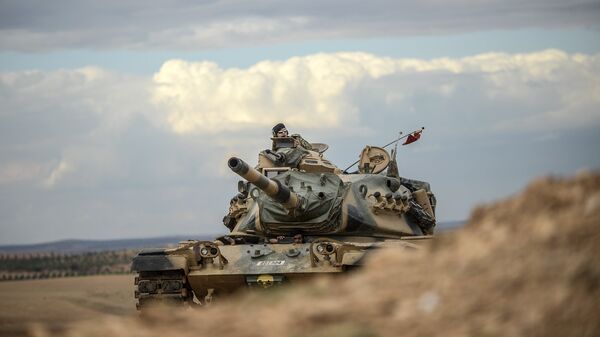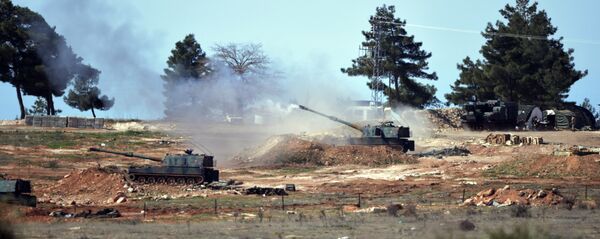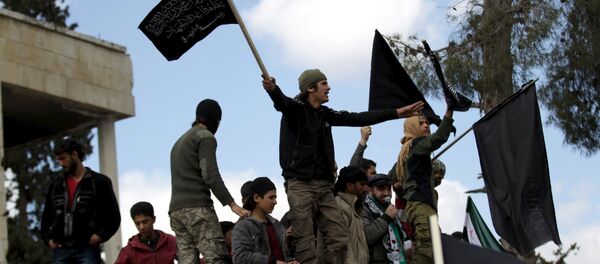Daccord said in an interview with RIA Novosti that the Directorate has “a good understanding and overview of what's happening around the migratory road."
"For us we have a very good visibility on the country of origin because we work within Syria and we know it very well. We have no visibility in Turkey because we don't work in Turkey. We don't have access and we don't work in Turkey specifically," he said.
According to Daccord, the human rights agency needs permission from Ankara in order to operate in Turkey, adding that the ICRC had made a request, but "so far they are not extremely interested to have us in Turkey where we would like to be in Turkey.”
The International Committee of the Red Cross has the feeling that none of the warring sides in the Syrian crisis fully respects international human rights, Daccord added.
He said that since the beginning of the conflict in Syria the Syrian Arab Red Crescent has lost 53 employees.
"This is just enormous. We've never seen that since the Second World War. None of us, no Red Cross, no Red Crescent around the world have lost so many people. Because this happens sadly very frequently," Daccord said in an interview with RIA Novosti.
He emphasized that such cases of shelling is "absolutely a violation of international humanitarian law."
He noted that even though the cessation of hostilities in Syria is in place it is “fragile,” but "this is good news as it makes life in Syria already better than in the last five years."
"The first thing we need to say is that it needs to be maintained, and we would really hope we'll have a continuation of the cessation of hostilities," he said.
Daccord said all of the sides of the conflict need to focus on the regions where the situation is particularly difficult.
"The most difficult area right now are besieged villages, towns, and hard to reach towns. There is still today hundreds of thousands of people in besieged areas on both sides, and we absolutely need to be able to have access,” Daccord said.
He said that it is not just one side of the conflicting parties doing the wrong thing, but access to hard-hit areas is needed.
"We don't see one side doing only the wrong things, it doesn't exist like that. When it comes to humanitarian in what we do, we are transparent. We ask every single group and the government for access and we're transparent about what we do, they can check, then what we expect them [to do] is they'll allow us to carrry on what we do."




